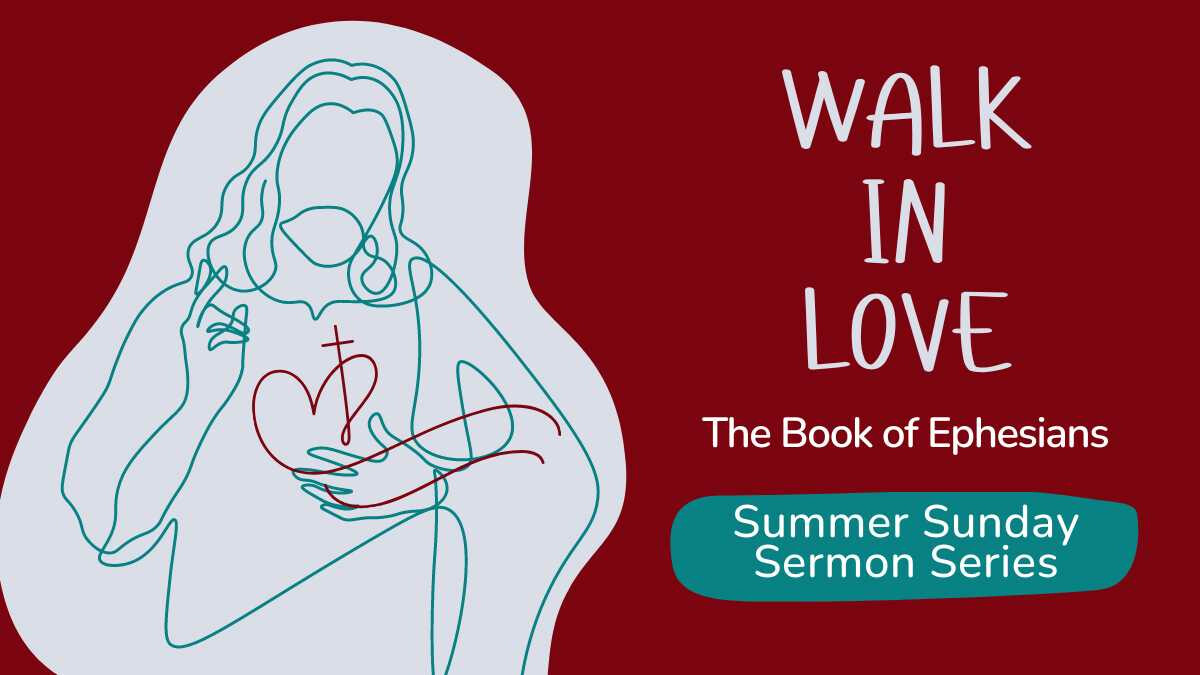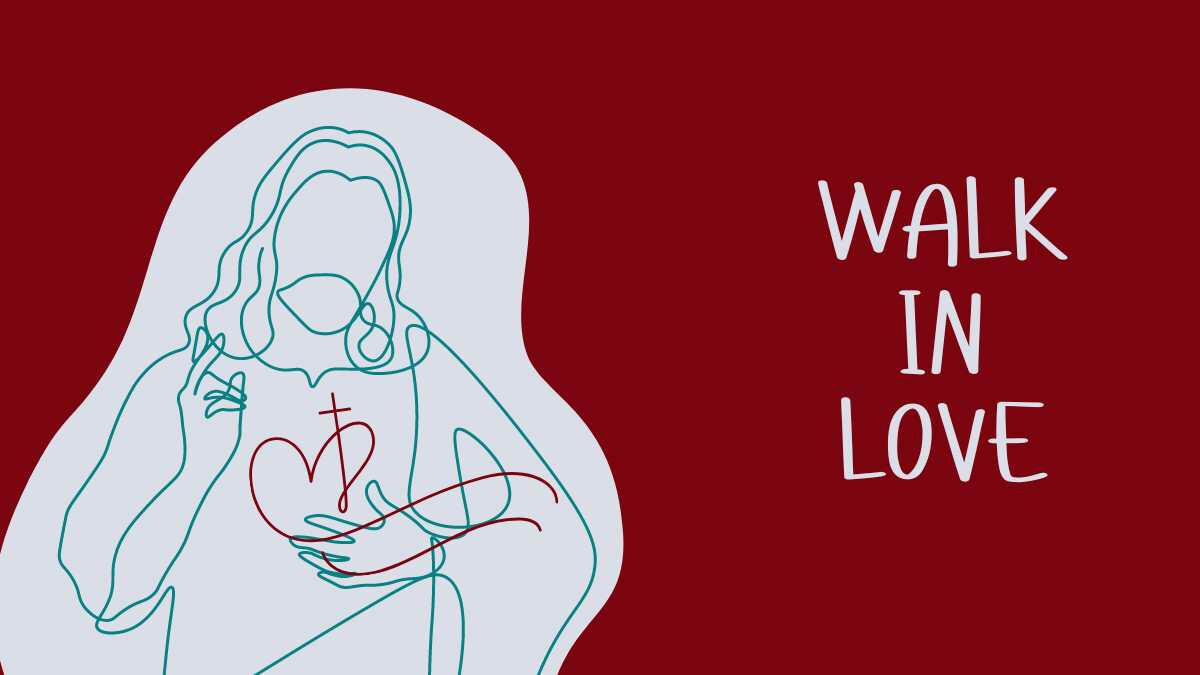
Praying through Ephesians
Introduction
CS Lewis proposed that the three most fundamental questions every person must answer can be framed with an analogy from commercial shipping. Consider a commercial vessel as an analogy for questions concerning ethics. The first question deals with personal ethics. Is this ship viable? Will it stay afloat? The second question deals with community ethics. How is the vessel navigating in order to keep it from running into other ships or from running aground? The third question focuses on essential ethics. Why is this vessel out on the water in the first place? For us, the personal ethic deals with our daily motives and habits. The community ethic describes how we interact with others. The essential ethic concentrates on the fundamental question of the meaning of life itself. For a seaworthy vessel, the answers to these questions likely go back to the manufacturer of the ship. What purposes did the designer and builder of the vessel intend? If the original intent was for a friendly sail boat for recreational enjoyment at the local lake, imagine the malfunction that would happen if that boat was commandeered for transporting a fleet of automobiles across the Pacific Ocean. In the same way, we too have been created by God with divine intention in these three areas. Any attempt to decouple our decisions, motives, and habits from the Designer brings terrible outcomes. God, the Creator of heaven and earth, made humans in His image. He designed the world as a whole and each of us individually with a particular purpose in mind.
The owner’s manual provides helpful information on how a particular product has been built, how it functions, and how to troubleshoot problems. So it is with us. God, the Designer and Builder of each one of us, provided an owner’s manual with critical information. We refer to this manual as the Bible or the Word of God. God provided us the Bible in order to answer these three ethical questions: How is my life viable? How do I live in harmony with others? Why am I on this earth to begin with? For our quest to see God’s answer to these fundamental questions, this devotional guide will focus on one book of the Bible, the Book of Ephesians. The Bible contains a library of books, written over the course of about 1500 years by some 40 different authors. The first 39 books make up the material that runs from creation until the year 300 BC. This section of the Bible is commonly referred to as the Old Testament. The second half of the Bible, the 27 books that make up the New Testament, focuses on the life of Jesus Christ and the launch of the Christian church. Ultimately the entire force of the divine revelation deals with Jesus. He was predicted in the Old Testament. His life dominates the material of the first four books of the New Testament. The remainder of the New Testament proclaims the message of Christ to the world. Though completed 2000 years ago, the Bible speaks to us today. Now that Christ has come, died, and risen, how does His mission impact us and how then should we live? How does Jesus answer the three fundamental questions we all must answer?
That is the theme of this particular book of the New Testament, the short book known as the Book of Ephesians. In reality, this writing isn’t a book, but a letter. This letter, from a man named Paul to a church in Asia Minor, provides us with a succinct overview of the Christian message. This six-chapter letter can be easily divided into two main parts: a life of faith and a life of integrity. Consistent with the ethical questions presented by CS Lewis, this letter by Paul answers the fundamental question of essential ethics and the fundamental questions of personal and community ethics. The first half of the book, Ephesians chapters 1-3, describes in detail the nature of essential ethics. Paul answers the fundamental question of why we exist and how we connect to the God who made us. The second half of the book, Ephesians chapters 4-6, details the personal and community ethic of those who adhere to the Christian faith. Here we find basic instructions for Christians with respect to our attitudes, words, and actions. Paul, who founded many churches during AD 40 and AD 50 until his arrest, trial, and eventual execution by the Roman government, wrote this letter to the church in Asia Minor with the express purpose of communicating these fundamental truths. Paul found himself under house arrest in the city of Rome. His legal dilemma developed due to his unwavering proclamation of Jesus Christ and his unique status as a Roman citizen. While awaiting trial, he wrote several letters including this one. From prison, Paul’s perspective remains fixated on the most basic realities of our lives. He addresses how our basic realities intersect with the life of Jesus Christ.
All answers to ethical questions begin and end with Christ, the Son of God. The essential ethical question of “why am I here?” begins with God and His plan for humanity through the life, death, resurrection, and second coming of His One and Only Son. We were created in order to see, know, experience, and enjoy God forever. However, a critical barrier prevents us from achieving this desired goal. God, though creating us for a relationship with Himself, is absolutely perfect. His perfection prevents any sinful person from residing in His presence. The word “sin” designates any thought, speech, or action that does not fit with God’s standards for our lives. God reveals this standard to us through the Bible. However, even without the Bible, God discloses to us His standards and our failure to meet His standards through our conscience. We know intuitively that we do not measure up to the perfection of God. The Bible affirms the universality of our imperfection. “All have sinned and fallen short of the glory of God.” (Romans 3:23) The Bible further reveals that our violations of God’s ethical and moral standards prevent us from experience the purpose for which we have been made. Isaiah, an Old Testament writer, said it this way. “Your sin has caused a separation between you and Your God.” (Isaiah 59:2) Our sin creates a separation, like the Grand Canyon, between us and God. Imagine standing on one side of the Grand Canyon and looking across to the other side at its widest spot, 18 miles separating the two locations, with a depth of nearly a mile. That describes the nature of our sin and its separating power. By our own choices we have dug an impassable canyon. Making matters worse, the failure is so overwhelming that we lack the capacity to ever make it right. We can never remove the barrier that our sin has created. We can no more bridge the gap between us and God than we could build a bridge across the Grand Canyon with a box of Legos. Ephesians depicts this condition in the most striking way. “And you were dead in your trespasses and sins.” Sin makes people spiritually dead. Dead people cannot help other dead people and dead people cannot help themselves either. Because of sin we remain completely incapacitated. Dead people cannot build a bridge across the Grand Canyon. Only someone living and with divine power can bridge this gap. Only someone who overcame the power of death and the grave can make dead people come to life. Ephesians says it this way. “But God being rich in mercy because of His great love with which He loved us, even while we were dead in our trespasses and sins, made us alive together with Christ.” (Ephesians 2:4-5) Notice the two fold concept, “made us alive” and “together with Christ.” Dead people cannot bridge the gap. God makes us alive through the work of Christ and brings us into relationship with Himself through Christ.
How does this work? How does a perfect God take dead sinners and remove the barrier to a relationship with Him? Two thousand years ago something amazing happened. God made a great substitution. Just like in sports when the perception of the coach deems the current gameplay of the team would benefit greatly by replacing a person who is currently in the competition when someone who is better for the moment. The coach makes a substitution in order to positively impact the game. Never has there been a greater need for a substitution. We were all unable to fulfill the necessary requirements in order to successfully live as God would have us live. Since God is perfect, our sin became an impenetrable barrier to the presence of God. Jesus Christ became our substitute. He lived a life we could never live. He also died a death that would should have died. Had He not entered into our world, we would be hopeless forever. He lived a perfect life which we could never live. He died a death in our place, a death that should have fallen on us.
How does the life and death of Jesus get applied to my own situation? We receive it as a gift. God’s offer to replace His Son’s life in exchange for ours is a gift. Gifts are to be received. We don’t pay for a gift. We don’t earn a gift. We don’t deserve a gift. By nature, gifts depend on the giver and not the recipient. The only task for the recipient is to receive. This is God’s offer to each of us, the gift of His Son Jesus Christ. Consider the way the Bible describes it. “For God so loved the world that He gave His One and Only Son, that whoever believes in Him will not perish but have everlasting life.” (John 3:16) “But as many as received Him He gave them the right to become children of God even to those who believe in His name.” (John 1:12) “For by grace you have been saved through faith and that not of yourselves; it is the gift of God.” (Ephesians 2:8) We receive the gift of salvation by believing in Jesus Christ. We acknowledge and confess our sinfulness. We realize that we are spiritually dead and separated from God. We receive the gift of Jesus as our substitute. He lived a perfect life and died a sinner’s death, but God brought Jesus back from the dead. By faith we accept His life, death, and resurrection in our place. This is what makes spiritually dead people come alive. This is what removes the barrier to the purpose for which we have been created. We come alive forever when we trust in Jesus.
With this main theme on our minds, let’s explore the Book of Ephesians. We will not expend much energy on the normal biblical background material such as authorship, dating, and recipients other than in a few places, as we work through the book. This book does not function as a commentary. Instead, this is a one-verse-at-a-time daily devotional guide. For more technical information, there are several great commentaries on the Ephesians. Instead, we will spend our time thinking more personally on the truths revealed in this letter from Paul to the church. May God be gracious to us as we contemplate His Word.



Login To Leave Comment